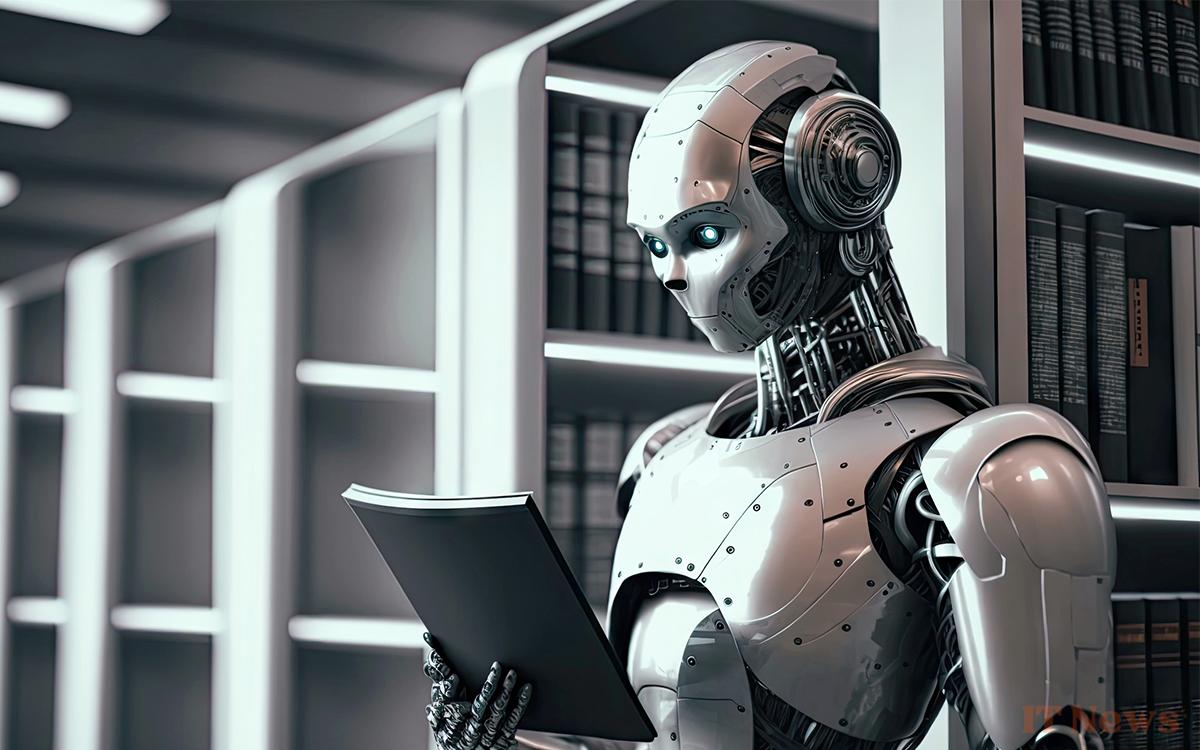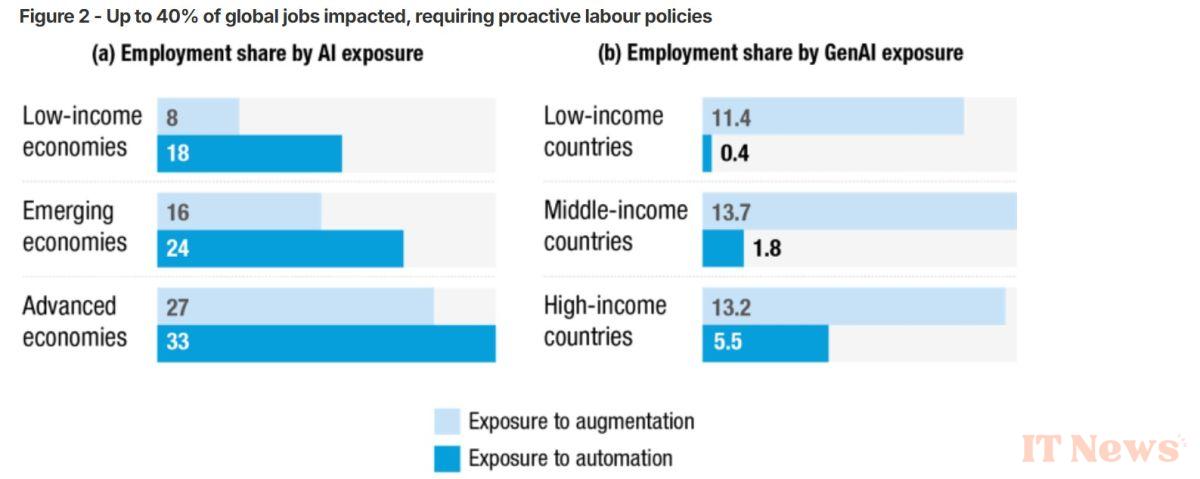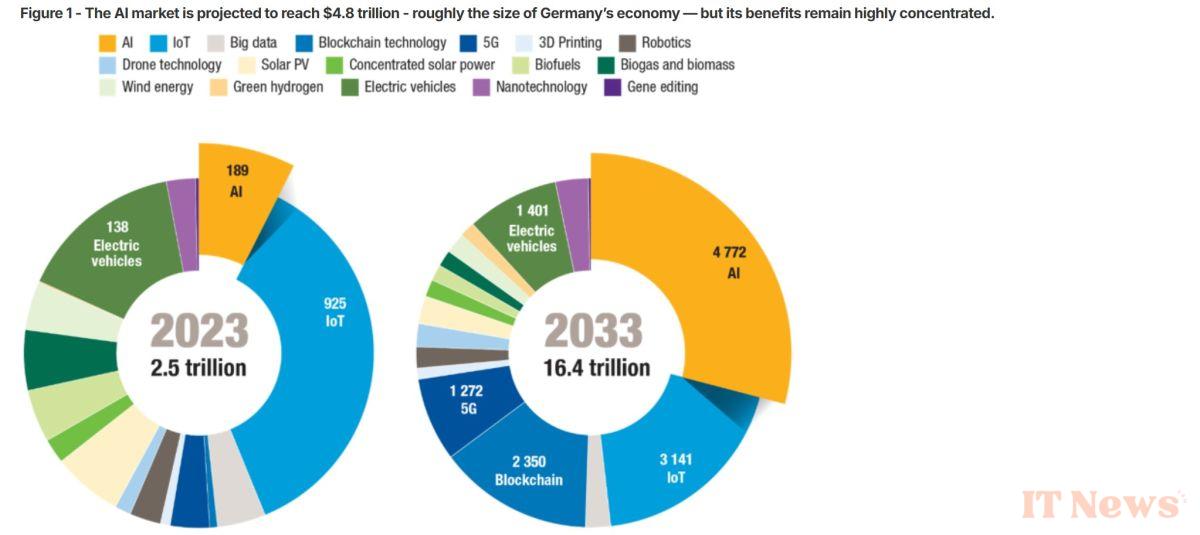AI will have a massive impact on the job market. If the right decisions are made at the right time, this impact may not be all negative. But we must act now to begin adapting to the new era we are entering.
The consequences of AI on the economy and workers will soon be felt, and a very large part of the population risks being directly affected by its emergence, indicates the latest UNCTAD report on technology and innovation. (United Nations Commission on Trade and Development), a UN body.
“AI could impact 40% of jobs worldwide, offering productivity gains, but also raising concerns about automation and job losses,” the study explains. It points out that “the benefits of AI-induced automation often favor capital over labor.” While businesses could therefore benefit from using AI to improve productivity, this would be at the expense of employees or independent workers, many of whom could ultimately be replaced by AI systems.
Jobs are threatened by AI
UNCTAD fears that this phenomenon could “widen inequality and reduce the competitive advantage of low-cost labor in developing economies.” But all countries and all skill levels can be affected. For the United Nations Commission on Trade and Development, however, AI is not necessarily a bad thing, but we will have to adapt to it, and as quickly as possible.
“AI doesn’t just replace jobs: it can also create new industries and empower workers,” believes UNCTAD. To prevent AI from creating a jobs crisis and instead to help it drive new opportunities, “investing in reskilling, upskilling, and adapting the workforce is essential,” the report points out.
Rebeca Grynspan, UNCTAD Secretary-General, calls for a stronger international cooperation with the aim of “refocusing the focus from technology to humans, enabling countries to jointly create a global framework for artificial intelligence.”.
A challenge that is already heading in the opposite direction. Two countries, the United States and China, outrageously dominate the AI industry and leave only crumbs for others. “Access to AI infrastructure and expertise remains concentrated in a few economies. Only 100 companies […] account for 40% of global research and development spending,” warns UNCTAD.
The omnipotence of a few large groups, which will be able to impose their rules on the world to access what will become indispensable from an economic and development perspective, is worrying. “Leading tech giants such as Apple, Nvidia, and Microsoft each have a market value of around $3 trillion, rivaling the gross domestic product of the entire African continent,” the UN points out. New technological divides could further widen inequalities.
AI is in the hands of a privileged few
“AI can be a catalyst for progress, innovation, and shared prosperity, but only if countries actively shape its trajectory,” UNCTAD believes, adding that “it is time to act” so that “AI benefits everyone, rather than reinforcing existing divisions.”
To prevent "AI from serving only the interests of a few", UNCTAD wants everyone to be able to participate in the major debates on its governance. It currently counts 118 countries that are completely absent from discussions and regulations on the subject. The organization also advocates for the establishment of a global shared infrastructure, which would provide equitable access to AI. However, it is not specified how this ambitious, even utopian, project could see the light of day.
The UN also mentions open data and open source to democratize knowledge and resources, “thus promoting inclusive innovation in AI”. It envisions a “global collaboration” that would lead to greater accessibility of AI technologies. If the most developed countries refuse to share their knowledge and infrastructure, the report urges developing countries to join forces and try not to be left behind.
AI could reach a market value of US$4.8 trillion by 2033, becoming the main driver of digital transformation, ahead of the Internet of Things or Blockchain.






0 Comments